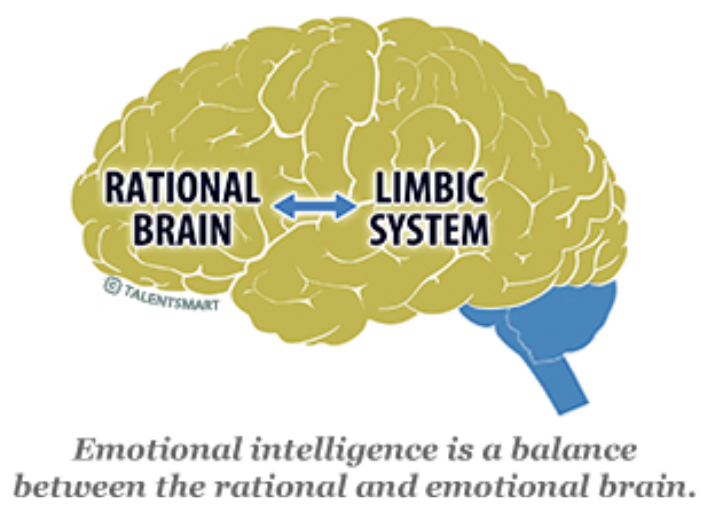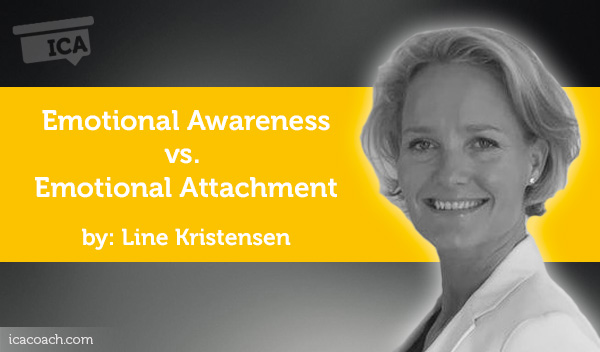A Coaching Power Tool Created by Line Kristensen
(Personal Leadership Coach, DENMARK)
There is always an Inner Game being played in your mind no matter what outer game you are playing. How aware you are of this game can make the difference between success and failure. Tim Gallwey, creator of The Inner Game
When figuring out my own personal power tool, I have been considering different options and ideas. What I have observed in my own coaching and in life generally is that many people are held back from growth by too being emotionally attached to thoughts around themselves, situations, ideas about their future or around others. They are finding themselves “stuck” in a certain mindset, that influences all aspects of their lives. Becoming emotional aware is, in my opinion, a strong game changer for many people. Emotional awareness correlates to a positive attitude and outlook on life. Let me start by explaining my understanding of the concept emotional awareness.
Being emotional aware is not about being perfect, not about suppressing certain emotions or being in control at all times. No one, I know, is at a place like this all the time – and part of being human is having a complexity of emotions. Being emotionally aware means knowing yourself to the extent, that you don’t just buy into the thoughts and emotions, that arise in you and act on them right away. Instead you take a “mental step back” and consciously choose thoughts, feelings and actions, that serve you better.
The psychologist Daniel Goleman defines self-Awareness and Self-management as follows:
Self-Awareness is your ability to accurately perceive your emotions and stay aware of them as they happen.
Self-Management is your ability to use awareness of your emotions to stay flexible and positively direct your behavior.
I believe that a great deal of what we achieve in life is determined by our ability to handle our emotions (self- awareness and self- management). When we become aware of our emotions and the behaviors they produce – we have the power to change our life. Self-awareness is the foundation of self -leadership.
The emotional intelligence can be developed. The pathway for emotional intelligence starts in the brain, at the spinal cord. Your primary senses enter here and must travel to the front of your brain before you can think rationally about your experience. First they travel through the limbic system, the place where emotions are generated. That means, that we have an emotional reaction to events before our rational mind is able to engage. Emotional intelligence requires effective communication between the rational and emotional centers of the brain.

I have put down, what I believe, could be some helping steps on the path on practicing emotional awareness and self management. I have used this strategy in my own life to help me get a clearer view and not get carried away by automatic thoughts and emotions:
Strategy for creating emotional awareness and self management
- Thoughts and feelings arise (body reactions occur).
- Breathe.
- Identify your thoughts – look at them from a very objective perspective (like you were reading a scientific article), Detach yourself, take a “mental step back”.
- Consider the consequences on your behavior. Are those thoughts and feelings serving you? Why? Why not?
- Be strategic. What do you want?
- Choose a behavior that fits your strategy
Coach application
In the following I would like to reflect on emotional awareness and coach application. First of all, I don’t believe that we as coaches can create emotional awareness for the client. It is something they have to do for themselves. We can create a safe, un-judgmental space and ask powerful questions, that can encourage the client to reflect on their own thoughts and feelings and the consequences they have on their lives.
I believe that one of the strongest coaching skills to create emotional awareness is “reflecting back” or paraphrasing, what the client is telling. Hearing somebody else paraphrasing your own words, thoughts and reflections is powerful – if it’s done the right way. It can open the door for awareness in the client.
Another coaching skill that creates a space for creating emotional awareness is “active listening”. Having somebody’s full presence and attention is magic. When somebody is really listening to you – you start to listen to yourself. Being able to listen to yourself is the first and most important step towards emotional awareness.
Integrating a range of different exercises in the coaching session, I believe, is a great way to increase the clients self-awareness. I have listed some in the following:
- Personality tests. Assessments like Enneagram and Myers-Briggs provide insights into the dominant patterns of behavior for your personality type.
- Self-reflection. Take time each evening to reflect on your behavior for the day. What can I learn from observing my behavior today?
- Journaling. Capturing your thoughts and feeling in a journal helps us objectify them. The process of getting your inner world down on paper is very powerful and helps increase awareness.
Shadow work. I do believe that in order to be fully aware of what is influencing our behavior we need to take a look at our shadow sides. No real transformation will happen if we don’t have the courage to take a look at and integrate our shadow sides.
